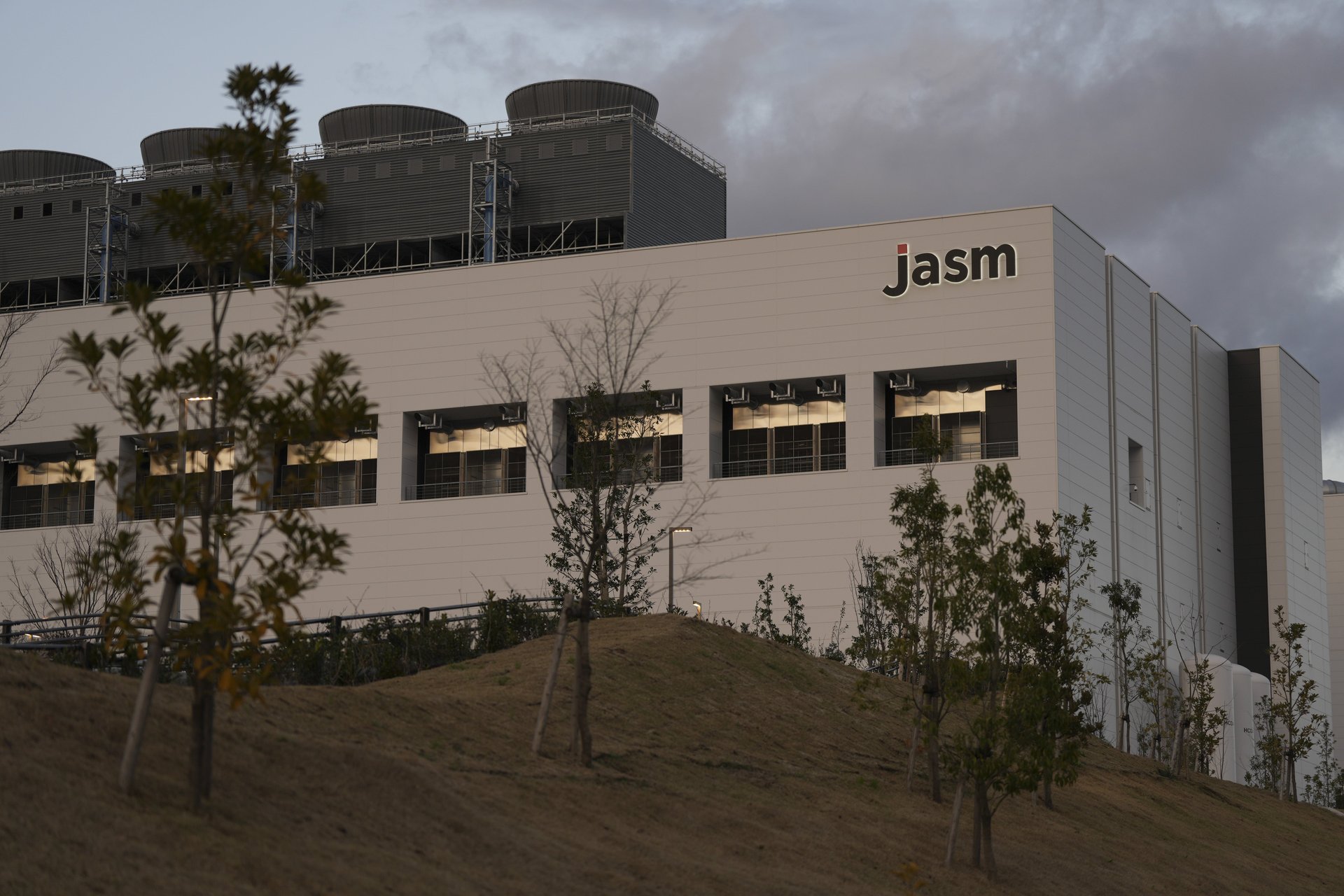Taiwan's premier AI chipmaker is heading to Japan amid the U.S.-China chip wars
TSMC is opening its first chip factory in Japan, set to start operations later this year

Taiwanese chipmaking giant Taiwan Semiconductor Manufacturing Company (TSMC) opened its first factory in Japan on Saturday (Feb. 24), expanding its global reach amid rising chip competition between the United States and China.
Suggested Reading
The Japan Advanced Semiconductor Manufacturing (JASM), located in the Kumamoto region in southwestern Japan, is set to start operations later this year, the Associated Press reported, and TSMC has announced plans to open a second factory in Japan in the next few years. Private sector investments into both plants reportedly amount to $20 billion.
Related Content
TSMC, which counts chip giants Nvidia and Apple as clients, is the world’s largest semiconductor foundry. And in recent years, it’s been pulled into a fierce tech feud between the United States and China, which has grown to spar over chip manufacturing and imports. That TSMC is a Taiwanese company is significant, as Beijing claims the self-ruling island democracy as part of its territory. Its expansion into Japan — an ally of the U.S. — follows Western expansions of the contract chipmaker, which is currently constructing its second plant in the U.S. and has announced a plan for its first in Europe.
“We are deeply grateful for the seamless support provided by [Japan] at every step,” TSMC chairman Mark Liu said at an official ceremony to open the factory. (TSMC founder Morris Chang was also in attendance.)
The Japan factory has about 45,000 square meters of area, a cleanroom for chip production, and a charge to focus production on automotive, industrial, and consumer-use chips, CNBC reported. Construction of the factory started in April 2022, after it was set up in 2021 with support from Japan’s government, Sony Semiconductor Solutions, and Denso Corporation, a Japanese automotive components manufacturer. Chip production is reportedly expected to begin at the end of the year.
U.S.-China chip fights could slow, not accelerate, the industry
Last month, Paul You, chairman of First Securities Investment Corporation, said the chip industry could be at risk amid U.S.-China tensions. “I do believe the escalation between U.S. and China, especially like the chip war, will become higher and higher and that will dampen the growth for the global semiconductor [industry],” You said.
In October, the Biden administration announced plans to tighten controls on shipments of advanced AI chips and semiconductor tools from American companies to China, including those from chipmaking leader Nvidia, in an effort to curb the country’s progress in its AI industry and in military developments. The U.S. had first imposed similar restrictions in October 2022.
Meanwhile, Japan is focusing investment into its semiconductor industry to keep up with competition in the Asia Pacific region. According to a report from the Center for Strategic and International Studies, Japan’s semiconductor industry is an estimated decade behind global chipmaking leaders like TSMC. In the late 1980s, the report says Japan’s semiconductor industry accounted for over half of the world’s production, but its share had fallen to 9% in 2022.